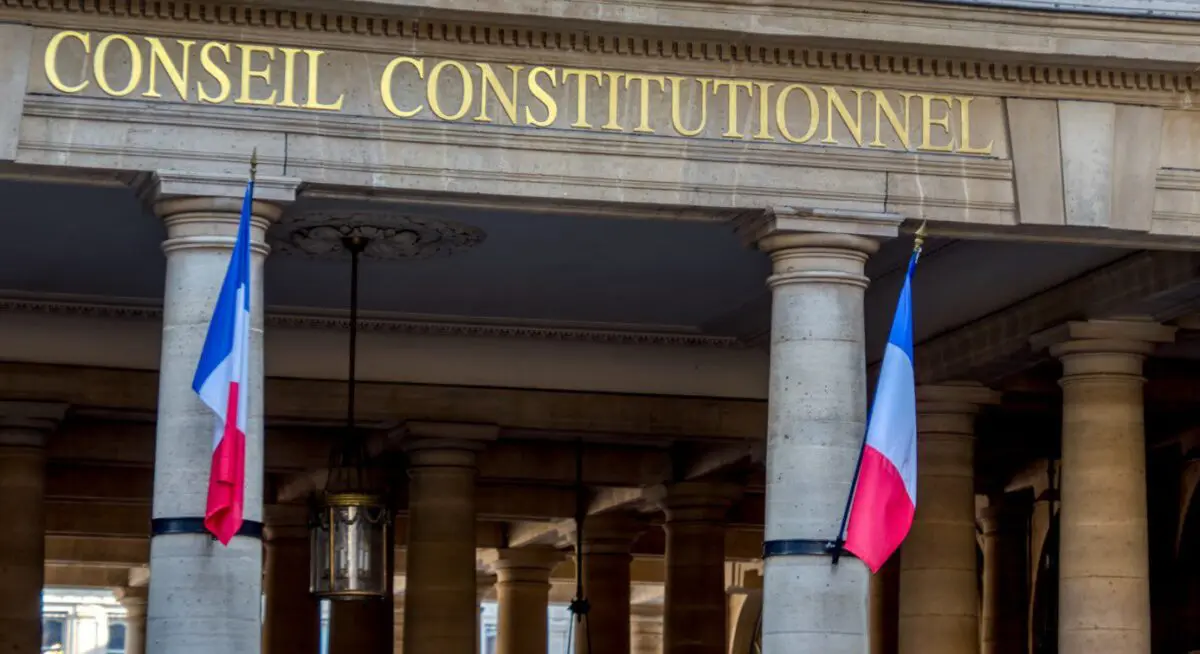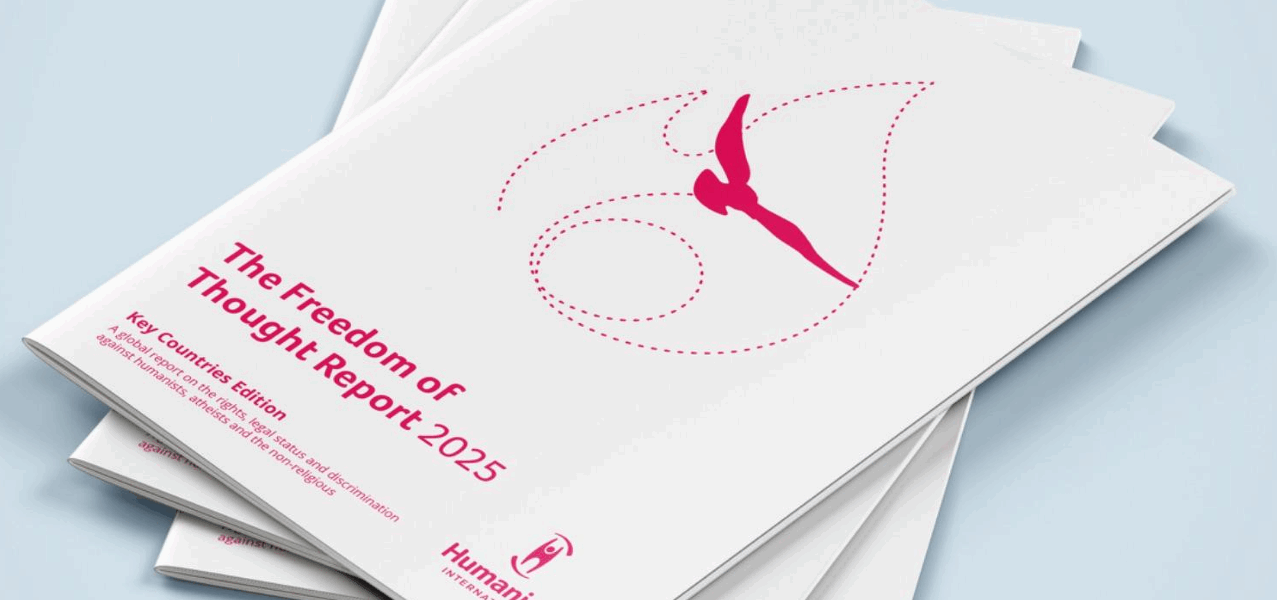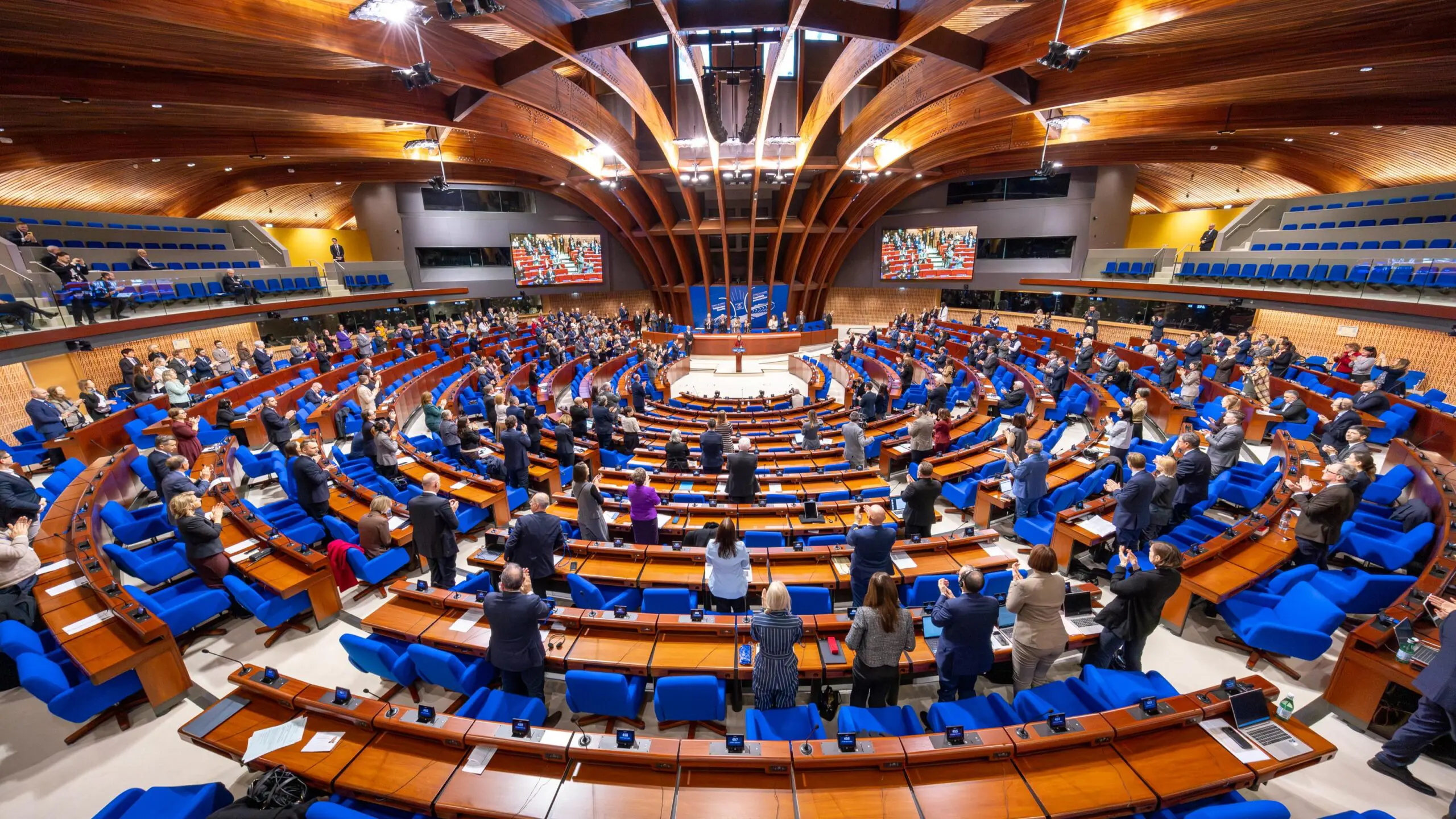On April 15th, over sixty members of the National Assembly and over sixty Senators referred the newly adopted law “to reinforce the fight against sectarian abuses” to the Constitutional Council for an a priori control of constitutionality pursuant to Article 61-2 of the Constitution.
The law creates new articles in the penal code in order to criminalize the act of “psychological subjugation” and the promotion of therapeutic or preventative unconventional practices.
In support of the argumentation developed by the Members of Parliament in their referral, the External Contribution below has been filed at the Council on Friday 26 April.
EXTERNAL CONTRIBUTION
Patricia Duval, Attorney at the Paris Bar, temporarily non practicing.
1. On Article 3 which creates the specific offence of putting a person under a state of psychological or physical subjugation (former Article 2)
In support of the argumentation developed by the Senators of the Republican Party (LR), it is important to emphasise that the very concept of “psychological subjugation” has been invalidated by the European Court of Human Rights in its decision Jehovah’s Witnesses of Moscow v. Russia (C-302/02, 10 June 2010) – this decision being referred to in their argumentation concerning Article 12 (choice of treatment and freedom to refuse blood transfusion).
In this case, the association Jehovah’s Witnesses of Moscow had referred to the European Court the decision of a Russian Court to dissolve their community.
The Court specifically reviewed the validity of the accusation by the Russian authorities that the right of citizens to freedom of conscience was violated because they were submitted to psychological pressure and “mind control” techniques.
After noting that members of this community testified before the Russian courts that they had made a free and voluntary choice of their religion and therefore followed its precepts of their own will, the Court found that there is no generally accepted and scientific definition of what constitutes “mind control” and that no definition of that term was given in the domestic judgments. (§ 128 et 129) [emphasis added]
Accordingly the Court ruled that “the findings of the Russian courts on this point were based on conjecture uncorroborated by fact” and found a violation by Russia of the right to freedom of religion or belief of the Jehovah’s Witnesses members.
Similarly, Article 3 of the law referred to the Constitutional Council criminalizes the fact of placing or maintaining a person under psychological subjugation (new Article 223-15-3 of the penal code) without providing any definition of this term and leaves it open to judges to conjecture on the definition, in violation of the Constitutional principle that offences and penalties must be defined by law.
In a report submitted to the Prime Minister in July 2008, Mr. George Fenech, former President of the Interministerial Mission for Monitoring and Combating Sectarian Abuses (MIVILUDES), delineated the theory which underlies French policy on “sectarian abuses”. This stated that consenting adult members of movements characterized as “sectarian” should be considered victims under subjugation and their consent considered null and void, even though those followers are mentally competent under civil law. (Report La justice face aux dérives sectaires, page 42)
This conception constitutes an outright violation of the right to freedom of thought and conscience as protected both by the French Constitution and the case-law of the European Court.
The imprecision of the term “psychological subjugation” in the Article submitted to the Council would force judges, in order to characterize the offence, to determine whether the suspected individual belongs to any of the movements listed as “sectarian” by the government services, in order to determine if his/her acts are likely to constitute a subjugation. In this regard, Article 14 of the new law provides the possibility for magistrates to consult any relevant government agencies (for example MIVILUDES) to clarify the application of new Article 223-15-3 of the penal code.
In a contribution to the MIVILUDES Report for 2008 (page 59), the Ministry of Internal Affairs brings further clarification on which criteria should be retained in order to characterize mental subjugation:
“The specific context of mental subjugation is characteristic of sectarian abuses. Repression should be initiated by the State when a number of criteria are met: – One or more individuals start to adhere to ideas differing from those which are usually shared by social consensus. The individual who adopts them is led to change his/her references, relations and actions. His/her life gets out of hand, being thereafter directed and conditioned by the psycho-sectarian manipulator.” [emphasis added]
The second criterion being when financial contributions are deemed to be excessive.
Those guidelines evidence the role of thought censorship that the government intends to play and impose on the judges.
During the tenth anniversary celebration of the law called About-Picard which created the offence of “abuse of weakness of persons under psychological subjugation” (which unfortunately was never referred to the Constitutional Council for review), the Director of Criminal Affairs and Pardons admitted in her speech that “the process of mental subjugation is in itself difficult to characterize”. (2011-2012 Report of MIVILUDES page 58)
She added that directions circulated by the Ministry of Justice on 19 September 2011 urged the magistrates to determine whether the victims were under psychological subjugation by evaluating tangible factors such as “separation from family, professional and social environment, and refusal of conventional medical treatments”. (Report page 60)
Hence, refusal of conventional treatments constitutes a criterion for the government bodies to establish a state of subjugation and any group promoting natural health for example can be considered as liable of exerting mental subjugation.
The label of “sectarian abuse” is in itself totally improper as this category does not refer to excluding behaviour per the definition of the word “sectarian”, but to behaviour deemed undesirable by the Government and repressed as such.
It is thus clear that the element of psychological subjugation which is connected to it, and which was difficult to gauge according to the Director of Criminal Affairs and Pardons under the existing law (Article 223-15-2 of the penal code), will be more so under the new Article 223-15-3 referred to the Council, since the objective element of the state of weakness of the individual has been removed.
New Article 223-15-3 created by Article 3 of the law would allow government bodies to exert an improper influence on the magistrates as to the interpretation to be given to the term “psychological subjugation” when it is the very component of the offence.
The government tried to mitigate those effects by introducing the following two sentences: “The government bodies do not assess the facts that the individual is accused of. The elements provided by the State bodies are communicated to the defense.”
These supposed guarantees will be totally ineffective since belonging to a movement labeled as “sectarian” by the State services will create in itself a presumption of guilt against the prosecuted individual. This presumption is deemed to be compensated for by the fact that the elements provided by the government will be communicated to the defense. However, our law is based on presumption of innocence and equality of arms between the prosecution and the defense, and not on a presumption of guilt fueled by the State’s information services.
The whole apparatus created by new Article 223-15-3 of the penal code infringes the principle that offences and penalties should be provided for and defined in law, and the right to a fair trial; it constitutes an interference of the executive power in judicial matters in blatant violation of our Constitution, as well as an infringement of the right to freedom of thought and conscience of our citizens.
2. On Article 12 which creates the offence of incitement to refuse treatment or to adhere to non-conventional practices (former Article 4)
Here again, the invalidity of the concept of psychological subjugation used in this Article to criminalize the authors or defenders of unconventional therapeutic or preventive practices is emphasised, in support of the appeals filed by the MPs of the Republican and National Coalition parties (LR and RN).
Article 12 creates a new Article 223-1-2 of the penal code, which criminalises “the incitement, through repeated pressures and actions on sick individuals, to have them discontinue or abstain from following a therapeutic or preventive medical treatment when this discontinuance or abstention is presented as beneficial for them, when it is, in the current state of medical knowledge, manifestly liable to entail, due to their pathology, very serious consequences for their physical or mental health.”
When the circumstances under which a potential offence occurred with the free and informed consent of the individual, especially in the presence of clear and complete information on the consequences for that person’s health, the offence is not characterized, “except if it is established that the individual was placed or maintained in a state of psychological subjugation” in the meaning of Article 223-15-3.
In this case, the state of “psychological subjugation” would make the free and informed consent of the patient invalid. This provision violates the right of patients to consent to the treatment of their choice or to refuse a proposed treatment, protected by the Charter of Fundamental Rights of the European Union which in Article 3 (right to the integrity of the person) provides that in the field of medicine, “the free and informed consent of the person concerned, according to the procedures laid down by law” must be respected, as well as the 2002 Kouchner Law on the rights of patients.
The European Court of Human Rights has ruled in the above mentioned decision Jehovah’s Witnesses of Moscow v. Russia:
- 135. The very essence of the Convention is respect for human dignity and human freedom and the notions of self-determination and personal autonomy are important principles underlying the interpretation of its guarantees (see Pretty, cited above, §§ 61 and 65). The ability to conduct one’s life in a manner of one’s own choosing includes the opportunity to pursue activities perceived to be of a physically harmful or dangerous nature for the individual concerned. In the sphere of medical assistance, even where the refusal to accept a particular treatment might lead to a fatal outcome, the imposition of medical treatment without the consent of a mentally competent adult patient would interfere with his or her right to physical integrity and impinge on the rights protected under Article 8 of the Convention (see Pretty, cited above, §§ 62 and 63, and Acmanne and Others v. Belgium, no. 10435/83, Commission decision of 10 December 1984).
- 136. The freedom to accept or refuse specific medical treatment, or to select an alternative form of treatment, is vital to the principles of self-determination and personal autonomy. A competent adult patient is free to decide, for instance, whether or not to undergo surgery or treatment or, by the same token, to have a blood transfusion. However, for this freedom to be meaningful, patients must have the right to make choices that accord with their own views and values, regardless of how irrational, unwise or imprudent such choices may appear to others.
Article 223-1-2 which has been referred to the Council directly infringes these principles of self-determination and personal autonomy by creating criminal prosecution of the detractors of certain official medical treatments. It violates the right of patients to refuse treatment, by invalidating their choice under the imprecise and arbitrary concept of “psychological subjugation”, which is only established by the very choice of refusal of conventional treatments (abstract from the 2011 Circular cited above).
And the “incitement, through repeated pressures and actions” stated in the Article does not concern only individual relations between a practitioner and his patient for example, since paragraph 6 of the same Article provides that this offence can be “committed” through written press or audiovisual media”.
Additionally, the second paragraph of new Article 223-1-2 criminalizes “the incitement to adhere to practices presented as therapeutic or preventive when it is manifest, in the state of medical knowledge, that those practices entail a risk of immediate death or injuries leading to a mutilation or permanent disability.”
This represents a prohibition of any promotion of practices other than official medicine, even though they could be complementary, such as naturopathy or Chinese medicine for example, if the medical authorities approved by the Government have decided that their validity has not been sufficiently proven.
The infringement of the free choice of patients is flagrant, as well as of freedom of speech and opinion. These measures represent an interference which is disproportionate and not necessary for the purpose of health protection it is alleged to justify, as the existing legal provisions are by far sufficient to repress abuses, as stated in the various MPs appeals (repression of illegal practice of medicine, pharmacy, misleading commercial practices, etc.).
The actual purpose of these provisions is rather to prohibit any dissenting opinion concerning health by labeling it “sectarian” and prosecuting their author, as if democracy that prevails in France, does not apply to the area of health where the voice of the people should be muzzled.
The Government attempt to silence the critics by introducing a paragraph mentioning the protection of whistleblowers (Article 6 of the law of 9 December 2016) is ineffective. This restrictive provision concerns only the exposure of crimes and offences, or serious threats or risks to public interest.
But the detractors of certain treatments of conventional medicine, when they call into question a not sufficiently tested vaccine, do not expose any crime or offence established under penal law and the defenders of alternative practices, when they promote natural remedies, do not expose any serious threat or risk to public interest. They cannot therefore benefit from this protection.
Lastly, it should be underlined that the law referred to the Council has been passed by force at the National Assembly in spite of the opposition of the Senate and the Council of State. And this, two days after the French government voted for a Recommendation of the Committee of Ministers of the Council of Europe to the member States on countering the use of abusive lawsuits intended to limit public participation, in French poursuites-bâillons, meaning “muzzling lawsuits” – Recommendation CM/Rec(2024)2 of the Committee of Ministers to member States on countering the use of strategic lawsuits against public participation (SLAPPs) adopted on 5 April 2024.
In this Recommendation, it is requested that the Member States “pay specific attention to SLAPPs [muzzling lawsuits] in the context of their reviews of relevant domestic laws, policies and practices, including in accordance with Recommendation CM/Rec(2016)4 on the protection of journalism and safety of journalists and other media actors, to ensure full conformity with member States’ obligations under the Convention”.
It would be logical that the Constitutional Council be the first to apply this Recommendation by censoring Article 12 of the law creating “muzzling lawsuits” which violate the rights protected by our Constitution.
For all the above reasons, as maintained by LR senators in their application, it is the entire apparatus created by the law which is liable to censure by the Council.







